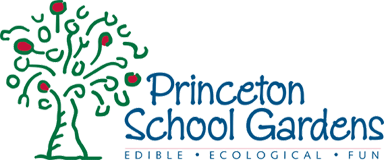May 10, 2021 – The announcement of free school meals for the year, along with meal reimbursements at the higher summer meal scale, have provided PPS+NutriServe with a stunning opportunity to rethink school food and center it in learning. This rethinking will deliciously link academics to meals, and through new practices, demonstrate to each student caring and respect at the most basic, most profound level: the food that becomes them.
This leap, through school foods, grounds stewardship, curriculum, and wellness policy, builds equity and provides nutrition security for every student, enabling school-day robustness, optimum attention to learning and playground fun, and in the future, lifelong resilience via decision-making in context of students’ own bodies, their communities, and the climate emergency we share. Recommendations for student-focused school foods:
Creating equity in all school foods, fueling students for learning readiness
- Remove extra snacks/sweets available only to those with money
- Create foods procurement standards that are within planetary boundaries
- Ensure that all foods served/sold address USDA-reported deficiencies/overages*
- Establish and maintain an eat-till-you’re-full-but-zero-waste policy
- Ensure all foods served/sold illustrate and amplify curricular goals
Respecting students, today, tomorrow – and through their lifetimes
- Routinely serve culturally appropriate foods to link children/reduce “otherness”
- Provide ongoing on-the-clock culinary training for all food service staff
- Transition within the year to zero waste in kitchens and cafeterias
- Transition all grounds within the year to support habitat/biodiversity and foraging
- Use cafeterias/gardens/grounds/PUMS Teaching Kitchens as research labs
The rethinking would launch from 16 years of groundwork – food programming and palate education for students conceived and provided by the Princeton School Gardens Cooperative in partnership with Princeton Public Schools and myriad farmers, artisan producers, businesses and institutions.
The nonprofit’s work already proved fertile ground for the formation of former Superintendent Steve Cochrane’s Kitchen Cabinet, a group of teachers, administrators, parents and PSGC board members who research, analyze and advise on school food systems, including meals, nutrition security, wellness policy, curricular links, operations, agriculture, biodiversity, and habitat creation.
One success: Superintendent Cochrane in spring 2020 secured a .4 position for a PPS Food Systems Literacy Coordinator. To add to that effort, PSGC fundraised $15k, and plans to seek more funding, and continues to provide research and boots on the ground.
* “A Closer Look at Current Intakes & Recommended Shifts,” Chapter 2, pp 43-62 https://health.gov/sites/default/files/2019-09/2015-2020_Dietary_Guidelines.pdf
